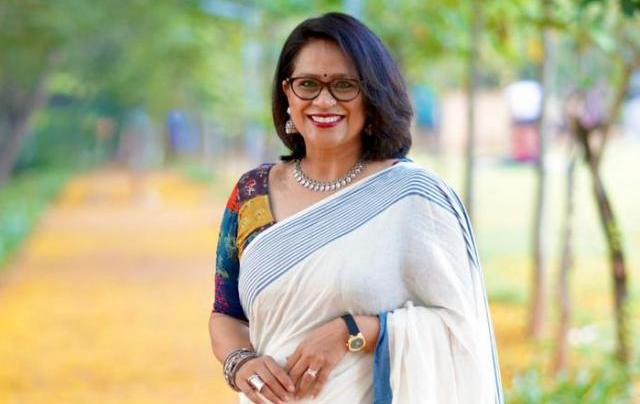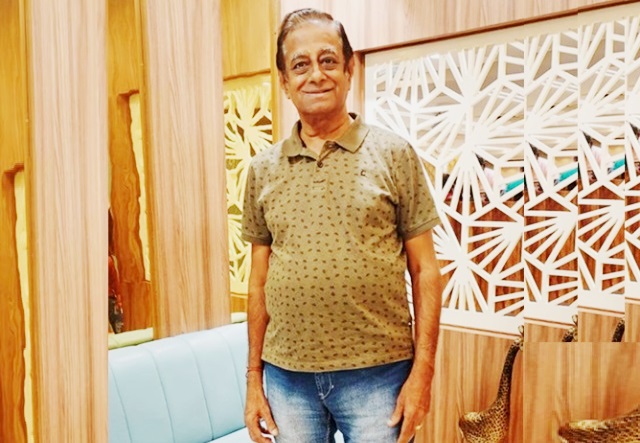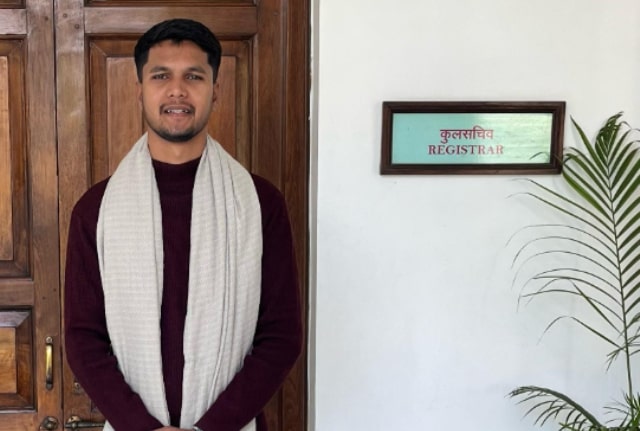Condemning the recent instances of language-based harassment in some cities, Bangalore-based Ambika Nair says language should open hearts, not close doors. Her views:
From childhood, we’re taught to be like sponges—amiable, absorbing, and assimilative. I was raised in such an environment, where being different was not just accepted but embraced. Growing up in Calcutta, where my parents were also born, it felt completely natural to speak multiple languages. In fact, I spoke Bangla before I became fluent in English.
Calcutta had this beautiful spirit of inclusivity—you could be of any religion, speak any language, and it was all completely normal. Studying in a convent school, we were surrounded by children speaking all kinds of languages. So we grew up without ever feeling the need to differentiate. When that becomes your foundation, you carry that value system with you into adulthood. And if I can pass that on to my children, I know they’ll imbibe the same ethos of acceptance and respect.
Another thing we’ve always been told since childhood is to learn a foreign language—French, Spanish, German—because it’ll help if we study or travel abroad. And it’s true. If you visit countries like France or Germany, you’ll see how strongly people hold on to their language. They may even hesitate to help you if you don’t speak it. In fact, when we seek employment in countries like France, Japan, or China, we willingly learn their language to adapt, to integrate, and to be respectful. Then why hesitate to learn and converse in the local language when we move to a different state or city within our own country? Especially when we go there to live, work, and grow alongside its people.
So I don’t see any harm in making an effort to learn Kannada if you’re living in Bengaluru or Marathi if in Maharashtra. It’s a small gesture—just a few words scattered in your sentences—but it matters. The people here are simple and warm. What they appreciate is the effort, the intention to connect. Even a simple “Madi” (do it) can make a difference.
I loved the initiative of an autorickshaw driver in Bengaluru, who displays a leaflet titled “Learn Kannada with Auto Kannadiga” in his vehicle. It lists everyday Kannada phrases with English translations to help passengers learn the basics—like greetings and how to ask for payment. That’s the kind of positive cultural bridge we need. I’ve personally begun weaving Kannada into my routine because of efforts like these.
ALSO READ: ‘Language Is A Medium To Assimilate, Not Alienate’
I sometimes wish the staff working in my home spoke Kannada. Ironically, many of them don’t—especially in more elite residential areas—because speaking Hindi opens up better employment opportunities for them. But had they spoken in Kannada, I know I would have picked it up quickly, just like my sister who lived in Banashankari. There, Kannada was the only way to get by. She lives in Delhi now but still proudly speaks the language when she visits Bengaluru.
My husband is Malayali, and after marriage, I found myself in a completely new linguistic environment. Initially, I couldn’t understand a word around me. Thankfully, my in-laws spoke English, so it wasn’t too tough. But I’ve seen friends in similar situations struggle for years. It’s hard not understanding what’s being said around you. I felt like a foreigner on many occasions. But I made a conscious effort to learn basic Malayalam words and phrases—just enough to get by—and it made a huge difference.
Language is such a beautiful gateway to shared existence. When you try to speak someone’s language, even brokenly, it brings an undeniable sweetness to the relationship. It shows respect and effort.

Now, when it comes to artists being asked—or forced—to perform or sing in the local language, I have a simple view. Many legendary singers like Sonu Nigam, Shreya Ghoshal, Lata Mangeshkar, Asha Bhosle, and S. P. Balasubrahmanyam have sung in multiple regional languages with ease and respect. Their voices transcend boundaries. But no one should be compelled. If a singer chooses to perform in a local language, wonderful. If not, that’s their right. Let’s keep politics and sensitive regional issues like Pahalgam out of music and performances. After all, the artist is there to entertain, not make a statement.
A few years ago, “Kannada gothilla”, (I don’t know Kannada ) was a standard response from newcomers. But now, I’ve seen it evolve into a warmer “Try madthini”” (I am trying). Just saying that brings a smile to people’s faces. And that’s the essence—it’s about trying.
At home, we always prioritised our mother tongue before anything else—even before English. And I believe that’s how people across India are protecting their languages, which is completely valid and beautiful. Because language should open hearts, not close doors and learning that language is not just about words—it’s about respect and a quiet act of belonging.
As told to Mamta Sharma


